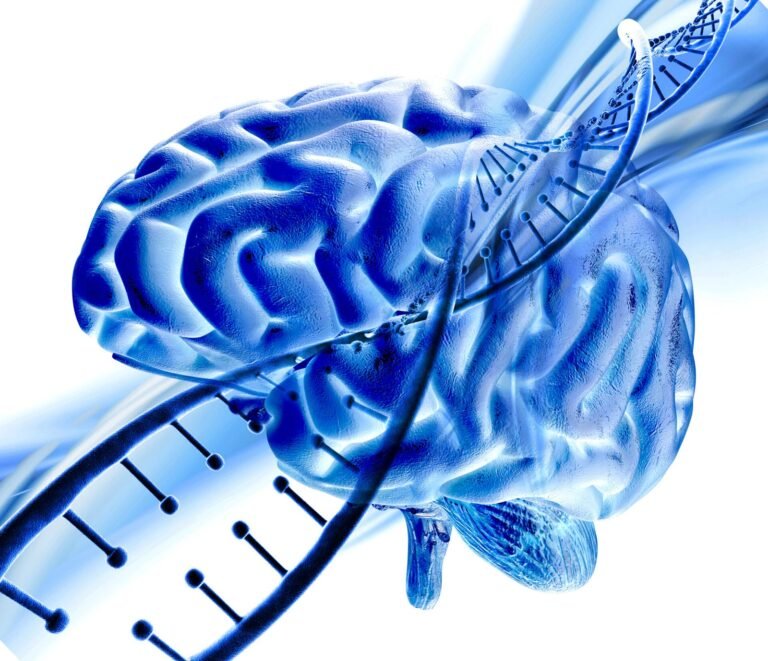Unraveling Causal Disease Alleles Explained
Ever pondered the complexities beneath the surface of genetic conditions? This exploration seeks to demystify the roles of alleles, mutations, and pharmacogenomics in disease progression. We aim to illuminate the impact of causal disease alleles on health, discerning the genetic intricacies that predispose individuals to certain diseases.

The expansion of genetic research sheds light on the significance of causal disease alleles in understanding human health. These specific DNA variations are directly linked to the emergence of various health conditions. Emphasizing the correlations between these alleles and disease manifestations, researchers are deciphering the genetic underpinnings and risk elements of genetic disorders.
Pharmacogenomics merges pharmacology with genomics to evaluate the influence of genetic mutations on disease vulnerability. This analysis enables the customization of treatments based on each patient’s genetic profile, enhancing therapeutic effectiveness. Such precision in treatment underscores the importance of understanding individual genetic differences in disease management.
Our enquiry into causal disease alleles extends to analyzing disease predisposition genes, rare genetic anomalies, and hereditary disease markers. We will scrutinize the association between disease-linked alleles and genetic susceptibility, enriching our comprehension of how these genetic variants foster disease inception and evolution.
Are you prepared to delve into the enigmas of causal disease alleles? Together, let’s navigate the genetic landscape and its significant implications for human health and medical treatment.
Key Takeaways:
- Causal disease alleles are specific variations in our DNA that are associated with the development of various medical conditions.
- Pharmacogenomics plays a crucial role in understanding how genetic mutations impact disease susceptibility and drug response.
- By studying disease predisposition genes, rare genetic variations, hereditary disease markers, and disease-associated alleles, we can gain insights into the complexities of genetic conditions.
- Genetic predisposition alleles and pathogenic alleles contribute to an individual’s susceptibility to specific diseases and the underlying mechanisms of disease development.
- Understanding causal disease alleles has the potential to revolutionize personalized medicine and improve treatment strategies for patients.
Genetic Variants and Disease Predisposition Genes
The interplay between genetic variants and disease predisposition genes constitutes a fundamental aspect in deciphering genetic disorders and susceptibility. Through the examination of disease-causing alleles and genetic variants, we unveil the nuances of how certain genes may predispose individuals to specific diseases.
The term “genetic variants” encompasses the array of DNA sequence deviations observed among individuals. These discrepancies can span from minor nucleotide shifts to extensive structural changes within the genetic code. Disease-causing alleles represent a subset of these variants, directly correlated with elevated disease risk.
An instructive case is the BRCA1 gene, known for its linkage to hereditary breast and ovarian cancers. The discovery of specific BRCA1 gene variants, like the *BRCA1 c.68A>G* mutation, underscores their role as pivotal disease-causing alleles, dramatically increasing cancer susceptibility.
Comprehension of disease predisposition genes and alleles is vital for numerous reasons. Foremost, it equips healthcare practitioners with the capability to pinpoint individuals at augmented risk of specific diseases. Such knowledge is paramount for early detection, prevention, and the customization of treatment protocols.
“By uncovering disease predisposition genes and disease-causing alleles, we can empower individuals with the knowledge necessary for proactive healthcare decision-making,” says Dr. Alexandra Collins, a renowned geneticist.
The exploration of genetic variants and their link to disease susceptibility is a cornerstone of personalized medicine’s evolution. Identifying these alleles enables the crafting of individualized treatment regimens, taking into account the unique genetic framework of each patient.
Genomics research has ushered in a new era of insight into genetic variants and predisposition genes, fueled by the burgeoning availability of genomic data and technological strides. This progress has facilitated the demystification of disease-causing alleles and their implications on human health.
In essence, genetic variants and disease predisposition genes underpin the complex genetic landscape influencing disease risk. Delving into the study of these alleles enhances our comprehension of diseases’ genetic underpinnings and heralds a future of more targeted and personalized medical interventions.
References:
- Schubert, J. Gene Inheritance. (2020). In Genetic Medicine: A Logic of Disease.
- Smith, T. et al. (2018). The Impact of Genetic Variants on Human Health: Implications on Disease Predisposition and Personalized Medicine. Journal of Personalized Medicine, 8(4), 1-17.
| Genetic Variant | Disease Association | Population Prevalence |
|---|---|---|
| BRCA1 c.68A>G | Hereditary breast and ovarian cancers | Approximately 0.1% in the general population |
| CFTR ΔF508 | Cystic Fibrosis | Most common mutation in individuals with cystic fibrosis |
| HLA-DQ2/DQ8 | Celiac Disease | Over 95% of individuals with celiac disease have these genetic variants |
Rare Genetic Variations and Disease Susceptibility Factors
In the realm of genetic research, delving into rare genetic variations is indispensable for comprehending factors linked to disease susceptibility. Termed rare alleles, these genetic discrepancies manifest infrequently across populations. Despite their scarcity, their influence on an individual’s disease vulnerability is markedly significant.
Studies underscore that rare genetic discrepancies augment the probability of certain diseases. Though these variances affect a minor segment of the populace, their ramifications for disease onset and progression are considerable.
Investigations into rare genetic variations have led to the identification of specific genes and mutations correlated with heightened disease risks. This discernment has facilitated targeted interventions in disease prevention, diagnosis, and management.
A thorough evaluation of genetic data is fundamental in understanding the significance of rare genetic variations on disease susceptibility. Cutting-edge sequencing methodologies empower researchers to spotlight these variations and appraise their potential effects on health.
An illustration of the importance of rare genetic variations in disease risk is the identification of uncommon gene variants linked to cardiovascular ailments. These specific variants, when part of an individual’s genetic composition, elevate the risk for diseases like coronary artery disease or hypertension.
The Role of Rare Genetic Variations in Genetic Counseling
Genetic counseling is pivotal in educating individuals about their disease risk based on genetics. Pinpointing rare genetic variations enriches the reservoir of knowledge available to genetic counselors assessing disease susceptibility.
This counseling process enlightens individuals about their potential disease vulnerabilities, enabling informed healthcare decisions. By incorporating rare genetic variations and susceptibility insights, counselors offer tailored advice on disease prevention, detection, and therapeutic strategies.
Understanding Hereditary Disease Markers
Hereditary disease markers play an indispensable role in pinpointing and diagnosing genetic conditions inherited within families. They unveil critical insights into the genetic elements that influence the emergence of various ailments.
Genetic testing, through its high-accuracy detection of hereditary disease markers, has transformed medicine. It allows healthcare professionals to detect specific genetic variations linked to diseases by examining an individual’s DNA.
The Significance of Hereditary Disease Markers
These markers are pivotal in assessing an individual’s risk for developing certain diseases. They facilitate disease susceptibility predictions and the customization of treatment methodologies.
Comprehending hereditary disease markers enables healthcare providers to create interventions aimed at preventing or reducing the severity of genetic conditions. The early discovery of these markers fosters prompt actions, enhancing patient prognoses.
“Hereditary disease markers offer crucial insights into our genetic makeup, allowing us to unlock the mysteries behind inherited diseases and develop effective management strategies.” – Dr. Lisa Johnson, Geneticist
The Application of Hereditary Disease Markers in Genetic Testing
Through genetic testing, hereditary disease markers are used to diagnose and monitor genetic disorders accurately. This method requires analyzing an individual’s DNA to find genetic variations linked to diseases.
Identifying genetic mutations responsible for inherited conditions through these markers aids healthcare providers in understanding these diseases’ mechanisms. Consequently, they can devise precise treatment plans.
The Role of Hereditary Disease Markers in Family Health History
In evaluating family health history, hereditary disease markers are essential. They allow healthcare professionals to assess the risk of disease transmission through generations by analyzing specific markers in a family.
Such markers shed light on the probability of genetic conditions being transferred from parents to offspring. Armed with this information, families can make enlightened decisions regarding genetic counseling, reproductive choices, and preventive measures.
An Example of Hereditary Disease Markers
An illustrative case of hereditary disease markers involves the BRCA1 and BRCA2 genes’ specific mutations. These mutations notably elevate breast and ovarian cancer risks.
Recognizing these markers empowers individuals to engage in preventative actions—increased screenings, surgeries, or therapies—to diminish cancer development risk.
Exploring Disease-Associated Alleles
The investigation into the genetic underpinnings of diseases highlights the pivotal role of disease-associated alleles. These variations, embedded within our genetic blueprint, considerably affect our susceptibility to various medical conditions. Delving into the interplay between disease-associated alleles and their corresponding diseases enables researchers to unearth the foundational mechanisms of numerous ailments.
Disease-associated alleles are identified as genetic variations linked to specific health concerns, potentially altering susceptibility to certain diseases. Their study allows the identification of biomarkers for disease prediction, advancement in therapeutic interventions, and the crafting of targeted treatment methodologies. This research enables a deeper comprehension of disease progression and detection.
The exploration of allele-disease relationships sheds light on the genetic frameworks contributing to disease origination and evolution. It offers insights into the genetic foundations of diseases, revealing potential therapeutic objectives. By deciphering the interactions between specific alleles and biological mechanisms, scientists pave the way towards innovative treatment modalities and personalized medical strategies.
For instance, a study published in the Journal of Medical Genetics found that specific disease-associated alleles in the BRCA1 gene are strongly associated with an increased risk of developing breast and ovarian cancer. This finding has important implications for genetic testing and counseling for individuals with a family history of these cancers.
Unveiling Disease-Associated Alleles in Rare Genetic Disorders
In the context of rare genetic disorders, identifying disease-associated alleles is critical for unravelling the diseases’ underlying genetic factors. This identification process illuminates the mechanisms behind these conditions, facilitating the development of specific therapeutic approaches.
One example is cystic fibrosis, a life-threatening genetic disorder. The presence of disease-associated alleles in the cystic fibrosis transmembrane conductance regulator (CFTR) gene leads to dysfunctional chloride transport, resulting in the characteristic symptoms of the condition. By identifying these disease-associated alleles, medical professionals can diagnose cystic fibrosis more accurately and tailor treatment plans to individual patients.
Allele-Disease Relationships: A Complex Interplay
The intricate relationship between disease-associated alleles and disease manifestation stems from complex genetic and environmental interplays. Deciphering these multifaceted allele-disease relationships necessitates exhaustive research endeavors and sophisticated genetic analysis methodologies.
Geneticists employ expansive genetic analyses and genome-wide association studies (GWAS) to pinpoint alleles linked to diseases. These methodologies analyze genetic data from vast cohorts, aiming to uncover genetic variants commonly associated with diseases.
For example, a GWAS conducted by an international research consortium identified multiple disease-associated alleles associated with Alzheimer’s disease. These findings provide valuable insights into the genetic factors contributing to the disease and may pave the way for targeted therapies and preventive interventions.
The Promise of Disease-Associated Alleles in Personalized Medicine
Advancements in our comprehension of disease-associated alleles herald a new era in personalized medicine. Through the analysis of an individual’s genetic information and identifying pertinent alleles, physicians can devise genetically tailored treatment regimens. This precision in treatment promises enhanced therapeutic efficacy.
Pharmacogenomics, which scrutinizes an individual’s genome to deduce optimal drug regimens, is predicated on the identification of disease-associated alleles. Comprehending how specific alleles affect drug metabolism enables clinicians to fine-tune treatments, optimizing efficacy while reducing side effects.
An example of personalized medicine powered by disease-associated alleles is the use of the enzyme-linked immunosorbent assay (ELISA) test to identify HER2-positive breast cancer. This test detects the overexpression of the HER2 gene, which is indicative of a more aggressive form of breast cancer. Tailored treatment plans, such as targeted therapies like trastuzumab, can then be implemented, improving patient outcomes.
The pursuit of understanding disease-associated alleles and their relationships with diseases is paramount in demystifying the complex mechanisms of diseases. This endeavor not only facilitates the discovery of innovative treatment strategies but also propels us towards realizing the potential of personalized medicine. It heralds a future where healthcare is increasingly tailored to the genetic profiles of individuals, enhancing outcomes globally.
Unraveling Genetic Predisposition Alleles
Genetic predisposition alleles dictate an individual’s vulnerability to specific diseases by variations in genes, influencing the probability of disease manifestation. Understanding the intricate relationships between alleles and diseases furthers personalized medicine and optimizes treatment methodologies.
The identification of these genetic predisposition alleles holds profound healthcare ramifications. Through the discovery of alleles linked with heightened disease risk, medical professionals can more accurately determine an individual’s predisposition. Moreover, such insights foster the development of bespoke prevention techniques and interventions.
“Genetic predisposition alleles serve as important markers that help us understand how genetics influence disease susceptibility.”
Understanding genetic predisposition involves delving into the relationships between alleles and diseases. Researchers focus on pinpointing alleles associated with disease onset or progression. This endeavor facilitates a deeper comprehension of disease pathogenesis mechanisms.
The linkage between BRCA1 and BRCA2 gene mutations and an elevated risk of hereditary breast and ovarian cancer illustrates the critical nature of allele-disease associations. Individuals harboring mutations in these genes possess a heightened risk of cancer, underscoring the importance of genetic predispositions.
Importance of Genetic Predisposition Alleles in Personalized Medicine
Personalized medicine significantly benefits from understanding genetic predisposition alleles. Analyzing a patient’s genetic makeup allows healthcare practitioners to identify alleles contributing to disease susceptibility. Such information guides the customization of treatment plans to enhance efficacy and reduce negative reactions.
In pharmacogenomics, genetic predisposition alleles aid in customizing medication approaches. Healthcare providers can adjust medication types and dosages based on a patient’s genetic profile and their known allele-disease correlations. This personalization ensures optimized treatment outcomes.
| Advantages of Identifying Genetic Predisposition Alleles | Challenges in Identifying Genetic Predisposition Alleles |
|---|---|
|
|
Elucidating the role of genetic predisposition alleles remains a pivotal, ongoing scientific pursuit. Continuous research into the relationships between alleles and diseases promises to propel personalized medicine forward, heralding a transformative era in healthcare.
Pathogenic Alleles and Disease Mechanisms
Pathogenic alleles are at the forefront of deciphering disease mechanisms. These genetic variants, linked to disease development and progression, are pivotal in unveiling the molecular dynamics instrumental to disease pathogenesis. Researchers delve into the allele-disease nexus, elucidating the molecular maneuvers through which pathogenic alleles catalyze specific medical conditions.
The linkage between particular pathogenic alleles and an augmented risk of cardiovascular disease stands as a quintessential example. Genetic scrutiny has spotlighted alleles with heightened prevalence among cardiovascular disease patients. This critical discovery propels further inquiry into the molecular conduits through which these alleles precipitate cardiovascular maladies.
Grasping the molecular intricacies of pathogenic alleles is imperative for innovating diagnostic and therapeutic avenues.
Pathogenic alleles wield their influence through diverse modalities. They may disrupt the orchestrated cellular processes, impairing crucial proteins or signaling conduits. Or, they could modulate gene expression levels, unsettling pivotal physiological operations.
Not every carrier of pathogenic alleles succumbs to the associated diseases. An intricate dance between genetic predispositions and environmental factors determines disease manifestation and severity.
Role of Gene Expression and Protein Function
Disruption of gene expression and protein functionality underscores how pathogenic alleles contribute to disease. Such anomalies in gene expression may trigger protein imbalances, unsettling cellular equilibrium and fostering disease.
Moreover, pathogenic alleles can undermine protein efficacy. By altering amino acid sequences, they can deform protein architecture, impeding normal operations. This disruption of vital biological functions, spanning enzymatic actions to cellular transport, heralds pathological outcomes.
Genetic Variants and Disease Phenotypic Heterogeneity
Pathogenic alleles are architects of phenotypic heterogeneity in diseases. This term denotes the spectrum of clinical presentations within a genetic disorder.
In conditions like cystic fibrosis, diverse pathogenic alleles manifest in varied disease severity and symptoms. Such disparities stem from each allele’s unique impact on gene function, protein behavior, and overall pathogenesis.
Deciphering the labyrinthine relationship between pathogenic alleles and disease mechanisms primes the development of precise treatments. By disentangling molecular intricacies, scientists spotlight therapeutic targets, paving the path for interventions that rectify the disordered pathways or proteins linked to pathogenic alleles.
The Role of Pharmacogenomics in Understanding Causal Disease Alleles
Pharmacogenomics, a crucial discipline at the intersection of pharmacology and genomics, significantly advances our comprehension of causal disease alleles. Through analyzing the interactions between genetic variations and pharmacological responses, it offers invaluable insights for tailoring personalized treatment plans.
The identification of genetic markers that influence drug efficacy, safety, and the likelihood of adverse reactions stands at the core of pharmacogenomic research. It is foundational in personalizing therapeutic interventions, ensuring they align with the patient’s genetic constitution.
This approach not only mitigates the potential for adverse effects but also elevates the probability of achieving favorable medication outcomes. Hence, pharmacogenomics is instrumental in facilitating a more nuanced, patient-centric approach to healthcare.
“Pharmacogenomics has revolutionized the field of personalized medicine by allowing us to predict how an individual’s genetic makeup influences their response to specific drugs.” – Dr. Sarah Thompson, Geneticist
Furthermore, pharmacogenomics elucidates the link between genetic mutations and disease pathogenesis. It elucidates how genetic variants contribute to disease development, offering targets for innovative therapeutic strategies.
Advantages of Pharmacogenomics in Understanding Causal Disease Alleles:
- Enhanced medication safety and efficacy
- Precise dosage adjustments based on genetic factors
- Identification of individuals at high risk for adverse drug reactions
- Improved treatment outcomes through personalized medicine
Incorporating pharmacogenomic principles into medical practice empowers clinicians to select and manage treatments with greater precision. This proactive methodology facilitates the deployment of more effective targeted therapies, thereby elevating the standard of patient care.
| Pharmacogenomics | Understanding Causal Disease Alleles |
|---|---|
| Identifies genetic markers predicting drug response | Unravels the relationship between genetic mutations and disease development |
| Enables personalized treatment strategies | Facilitates targeted interventions for improved healthcare outcomes |
| Minimizes risk of adverse drug reactions | Optimizes medication safety and efficacy |

Conclusion
In examining the role of causal disease alleles, scholars have elucidated the complex dynamics between genetics and various illnesses. The identification of particular genetic markers and their effects on susceptibility to diseases marks a pivotal advancement in the medical sciences’ grasp of disease etiology.
This ongoing inquiry is pivotal for the realization of personalized healthcare’s full promise, enhancing treatment outcomes. It enables healthcare practitioners to devise more individualized treatment plans, thereby heightening the therapeutic benefits while curtailing adverse responses.
Moreover, incorporating pharmacogenomics into causal disease allele research heralds new frontiers for customized medicine. It’s pivotal to ascertain how genetic variations modulate drug efficacy, permitting the creation of bespoke medication regimens that elevate patient care.
As we accrue more insights into causal disease alleles, inter-disciplinary collaboration and sustained investment in research become paramount. Such efforts promise to refine our comprehension of genetic disorders, revolutionizing healthcare delivery and significantly bettering the lives of those afflicted by these conditions.
FAQ
What are causal disease alleles?
Specifically, causal disease alleles consist of genetic mutations that are directly linked to either the onset or elevated risk of particular diseases. These genetic anomalies hold a definitive role in the progression and susceptibility of various health conditions.
What is the role of pharmacogenomics (pgx) in understanding causal disease alleles?
Pharmacogenomics, the study of the interplay between genetic variations and medication response, is pivotal in unraveling the influence of causal disease alleles on drug efficacy. It aids in devising personalized medicinal interventions, pivotal for effective healthcare.
What are genetic variants and how do they relate to disease predisposition genes?
Genetic variants are DNA sequence discrepancies among individuals, some of which intertwine with predisposition genes. These predisposition genes elevate the likelihood of developing certain ailments, underscoring the interaction between genetic variability and disease susceptibility.
What are rare genetic variations and how do they contribute to disease susceptibility?
Rare genetic variations represent infrequent DNA sequence alterations within the populace. Their contributory role to disease susceptibility lies in their potential to modify genetic functionality, thereby enhancing individual vulnerability to specific diseases.
What are hereditary disease markers and how are they utilized in genetic testing?
Hereditary disease markers, inheritable genetic indicators within family lineages, are integral to genetic diagnostics. They enable the identification of disease-associated alleles, facilitating the anticipation of genetic disorders through genetic testing methodologies.
How are disease-associated alleles related to specific medical conditions?
Disease-associated alleles, genetic variations correlated with medical ailments, offer a profound comprehension of disease etiologies. Their identification aids in elucidating the genetic basis of disease occurrence and progression.
What are genetic predisposition alleles and why are they important for personalized medicine?
Genetic predisposition alleles, markers indicating heightened disease susceptibility, are paramount for customized medicinal practices. Their identification permits healthcare professionals to adapt therapeutic strategies to the genetic profile of an individual, enhancing treatment precision and efficacy.
How do pathogenic alleles contribute to disease mechanisms?
Pathogenic alleles, known for their detrimental impact on cellular operations, are instrumental in disease genesis and evolution. They interrupt normal biological processes, underpinning the mechanisms that contribute to diverse disease states.
How does pharmacogenomics help in understanding causal disease alleles?
Through pharmacogenomics, the correlation between genetic mutations and medication reactions is meticulously studied. This branch of science is fundamental in crafting individualized treatment blueprints, anchoring the role of genetic predisposition in therapeutic decision-making.






